Introduced in 1907, the Vincenzo Lancia’s first car showed an independence of thought and defiance of convention that would remain associated with the marque well into the modern era. Lancia recommenced production after WW2 with the Aprilia and its smaller cousin the Ardea, but waiting in the wings was yet another groundbreaking design: the Aurelia. Lancia’s classic Aurelia, the first car ever to employ a V6 engine, was launched at the 1950 Turin Motor Show. Designed in wartime by Francesco de Virgilio, the 1,754cc 60-degree V6 was of all-aluminium construction and used overhead valves operated via short pushrods instead of Lancia’s traditional overhead camshafts. An advanced unitary-construction design, the Aurelia retained Lancia’s ‘sliding pillar’ independent front suspension, first seen on the Lambda, but used a novel semi-trailing-arm layout at the rear, another world first. The transmission too, was unusual, comprising a two-piece prop-shaft and combined gearbox/rear transaxle on which were mounted the inboard brakes, though for once this was not an entirely new departure. The B10 saloon was joined the following year by the Pinin Farina-styled B20 Coupé, a fastback ‘2+2’ on a shortened wheelbase which, with its combination of sports car performance and saloon car practicality, can be said to have introduced the Gran Turismo concept to the world. The Aurelia engine had been increased to 1,991cc in 1951 and it was this unit in up-rated form that went into the B20. Lighter and higher geared than the saloon, the B20 was good for a top speed of over 100mph. Introduced in 1953, the 3rd and subsequent series B20s were powered by a 2,451cc, 118bhp version of the pushrod V6, while 4th-series onwards cars had De Dion rear suspension instead of the original semi-trailing-arm arrangement. An engineering tour de force clothed in sublime coachwork by Italy’s foremost carrozzeria, the Aurelia B20 represents for many the zenith of Lancia’s post-war production. This Aurelia B20GT has been mechanically overhauled (engine, transmission and electrics) by Kappa, one of Italy’s foremost automotive restoration specialists, but otherwise has been conserved in original condition. Chassis number ‘3901’ was delivered on 9th January 1958; has had only three owners and is known to the Registro Storico Lancia. Finished in white with blue-grey interior, the car is offered with Kappa’s detailed restoration invoices and its original Italian Milano number plates and libretto. Cette Aurelia B20 GT a bénéficié d'une réfection mécanique (moteur, transmission et électricité) par Kappa, une des spécialistes majeurs de la restauration en Italie, mais a été préservée par ailleurs dans son état d'origine. Portant le numéro de châssis "3901", elle a été livrée neuve le 9 janvier 1958 et n'a eu que trois propriétaires. Elle est connue du "Registro Storico Lancia". De couleur blanche avec intérieur bleu-gris, elle est proposée avec les factures détaillées des travaux réalisés par Kappa, ainsi que ses plaques d'immatriculation milanaises originales et son "libretto".
Introduced in 1907, the Vincenzo Lancia’s first car showed an independence of thought and defiance of convention that would remain associated with the marque well into the modern era. Lancia recommenced production after WW2 with the Aprilia and its smaller cousin the Ardea, but waiting in the wings was yet another groundbreaking design: the Aurelia. Lancia’s classic Aurelia, the first car ever to employ a V6 engine, was launched at the 1950 Turin Motor Show. Designed in wartime by Francesco de Virgilio, the 1,754cc 60-degree V6 was of all-aluminium construction and used overhead valves operated via short pushrods instead of Lancia’s traditional overhead camshafts. An advanced unitary-construction design, the Aurelia retained Lancia’s ‘sliding pillar’ independent front suspension, first seen on the Lambda, but used a novel semi-trailing-arm layout at the rear, another world first. The transmission too, was unusual, comprising a two-piece prop-shaft and combined gearbox/rear transaxle on which were mounted the inboard brakes, though for once this was not an entirely new departure. The B10 saloon was joined the following year by the Pinin Farina-styled B20 Coupé, a fastback ‘2+2’ on a shortened wheelbase which, with its combination of sports car performance and saloon car practicality, can be said to have introduced the Gran Turismo concept to the world. The Aurelia engine had been increased to 1,991cc in 1951 and it was this unit in up-rated form that went into the B20. Lighter and higher geared than the saloon, the B20 was good for a top speed of over 100mph. Introduced in 1953, the 3rd and subsequent series B20s were powered by a 2,451cc, 118bhp version of the pushrod V6, while 4th-series onwards cars had De Dion rear suspension instead of the original semi-trailing-arm arrangement. An engineering tour de force clothed in sublime coachwork by Italy’s foremost carrozzeria, the Aurelia B20 represents for many the zenith of Lancia’s post-war production. This Aurelia B20GT has been mechanically overhauled (engine, transmission and electrics) by Kappa, one of Italy’s foremost automotive restoration specialists, but otherwise has been conserved in original condition. Chassis number ‘3901’ was delivered on 9th January 1958; has had only three owners and is known to the Registro Storico Lancia. Finished in white with blue-grey interior, the car is offered with Kappa’s detailed restoration invoices and its original Italian Milano number plates and libretto. Cette Aurelia B20 GT a bénéficié d'une réfection mécanique (moteur, transmission et électricité) par Kappa, une des spécialistes majeurs de la restauration en Italie, mais a été préservée par ailleurs dans son état d'origine. Portant le numéro de châssis "3901", elle a été livrée neuve le 9 janvier 1958 et n'a eu que trois propriétaires. Elle est connue du "Registro Storico Lancia". De couleur blanche avec intérieur bleu-gris, elle est proposée avec les factures détaillées des travaux réalisés par Kappa, ainsi que ses plaques d'immatriculation milanaises originales et son "libretto".


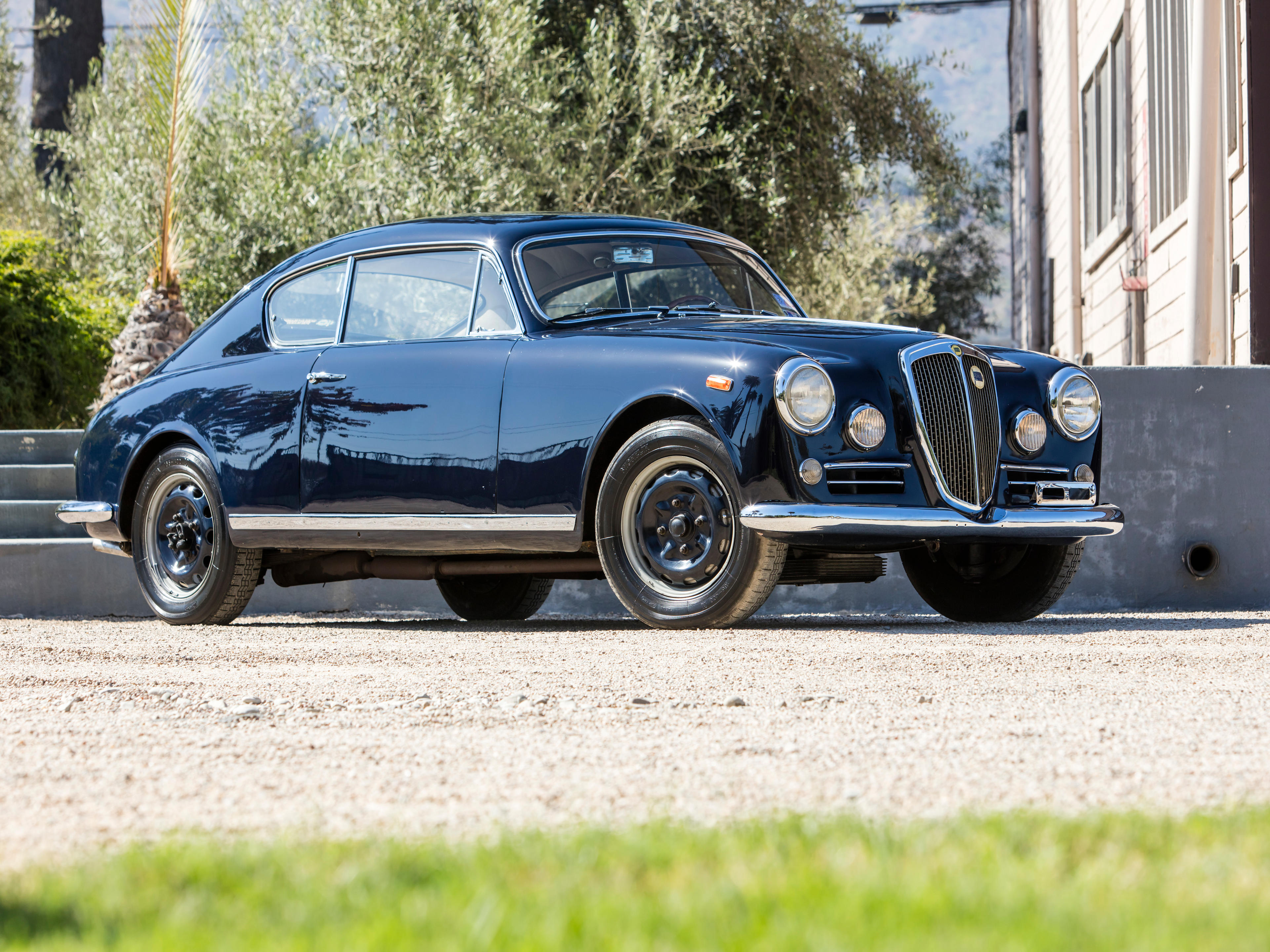




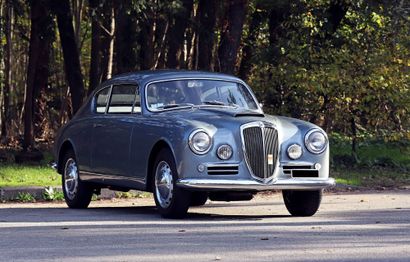

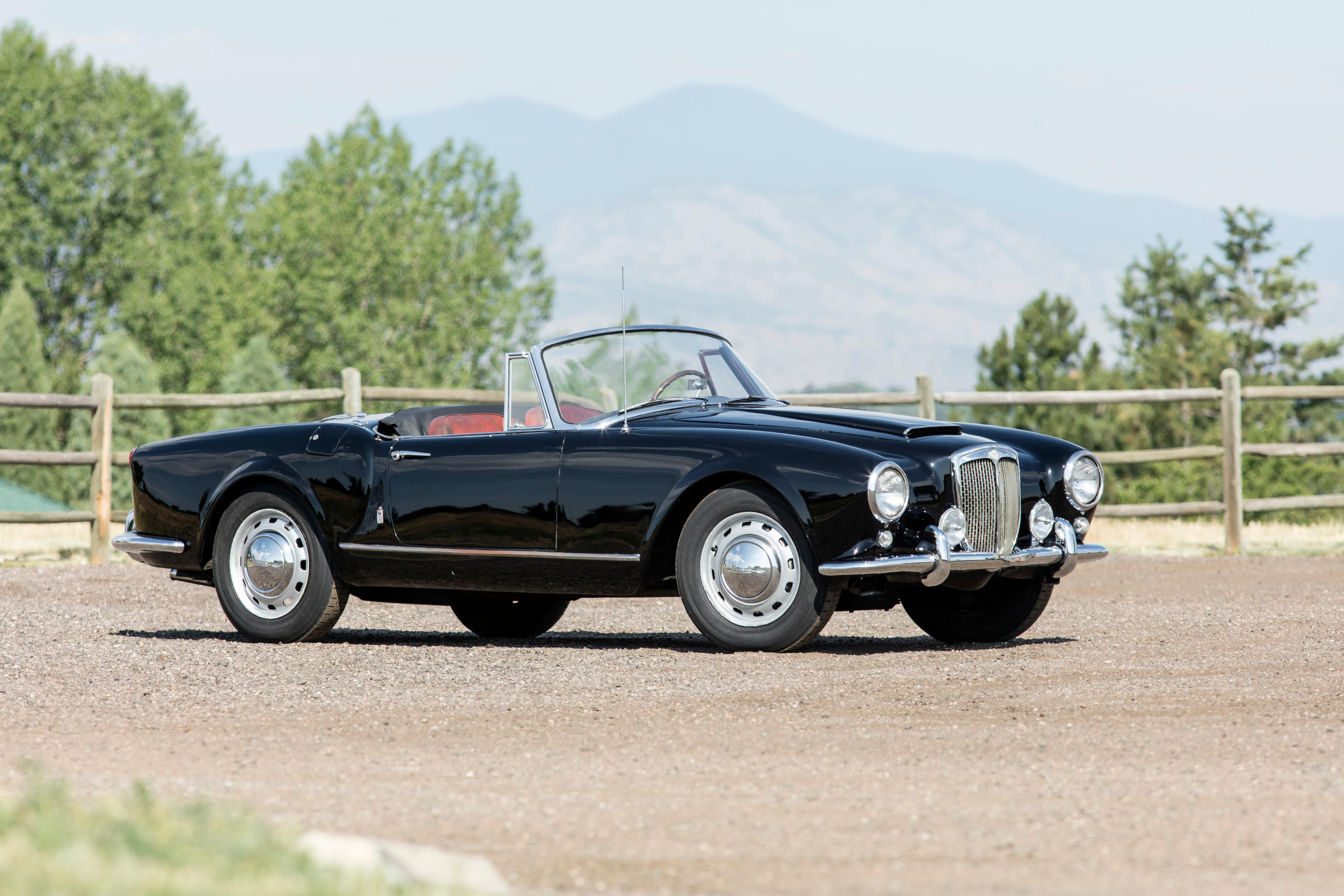
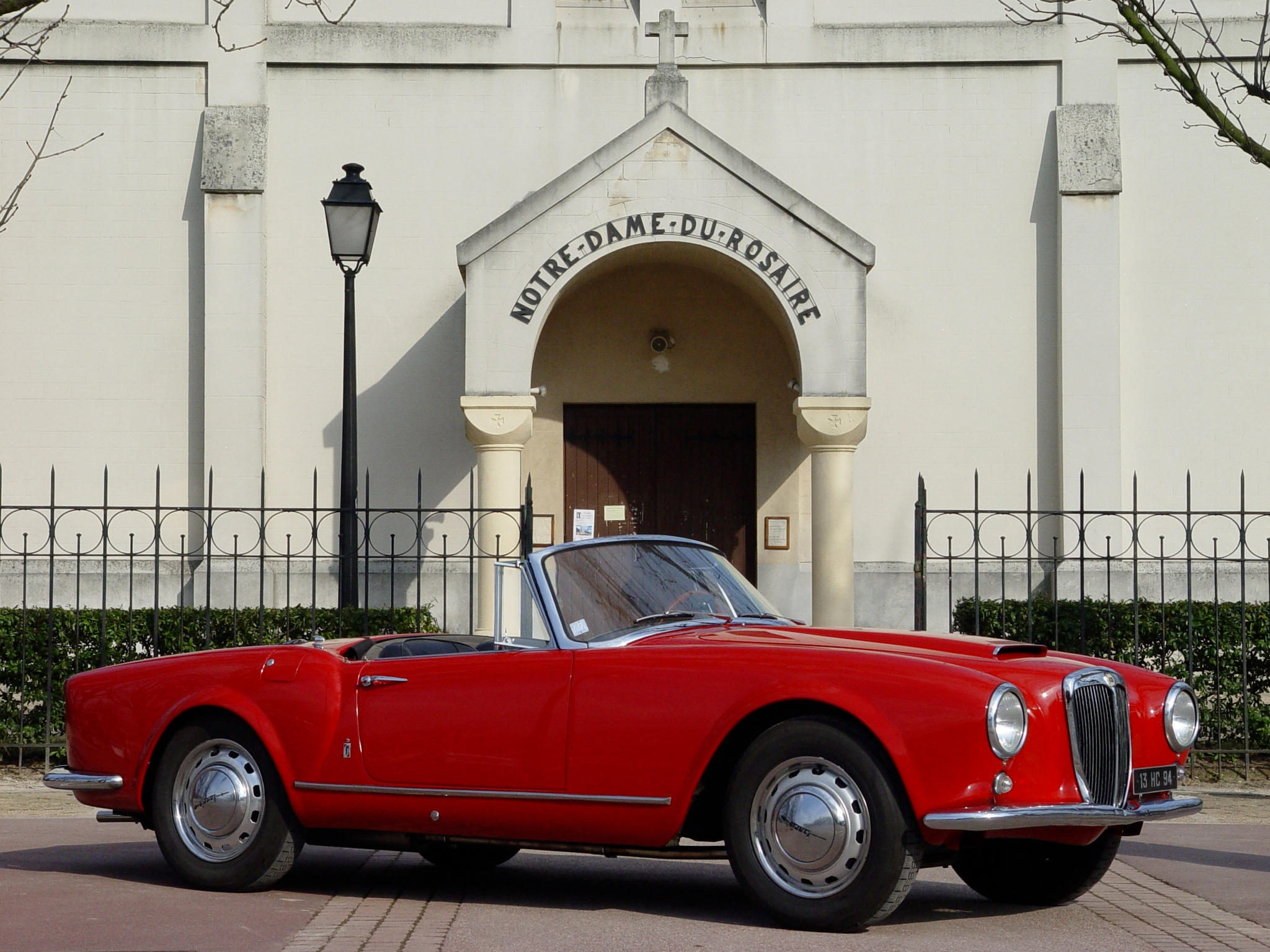


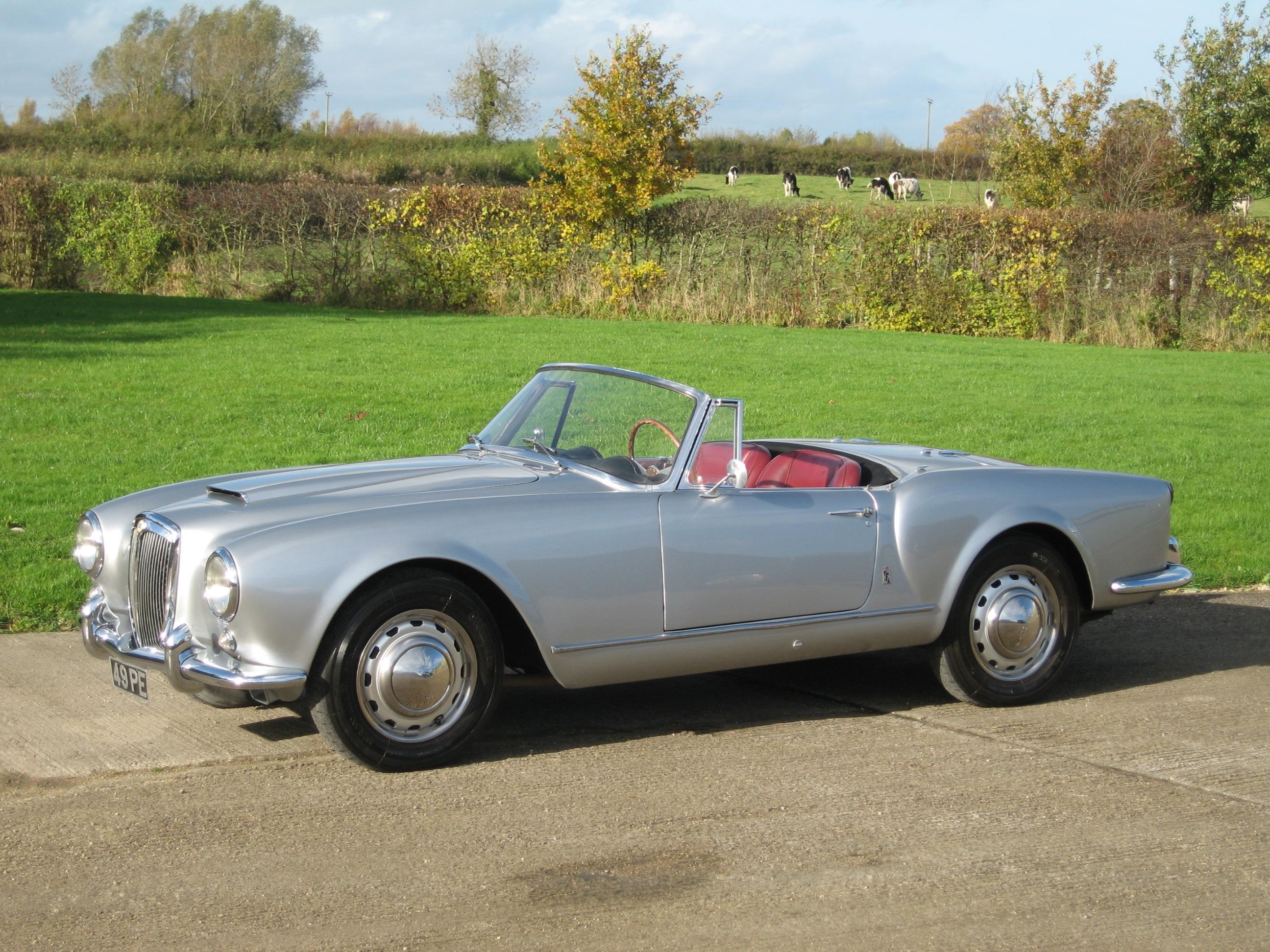
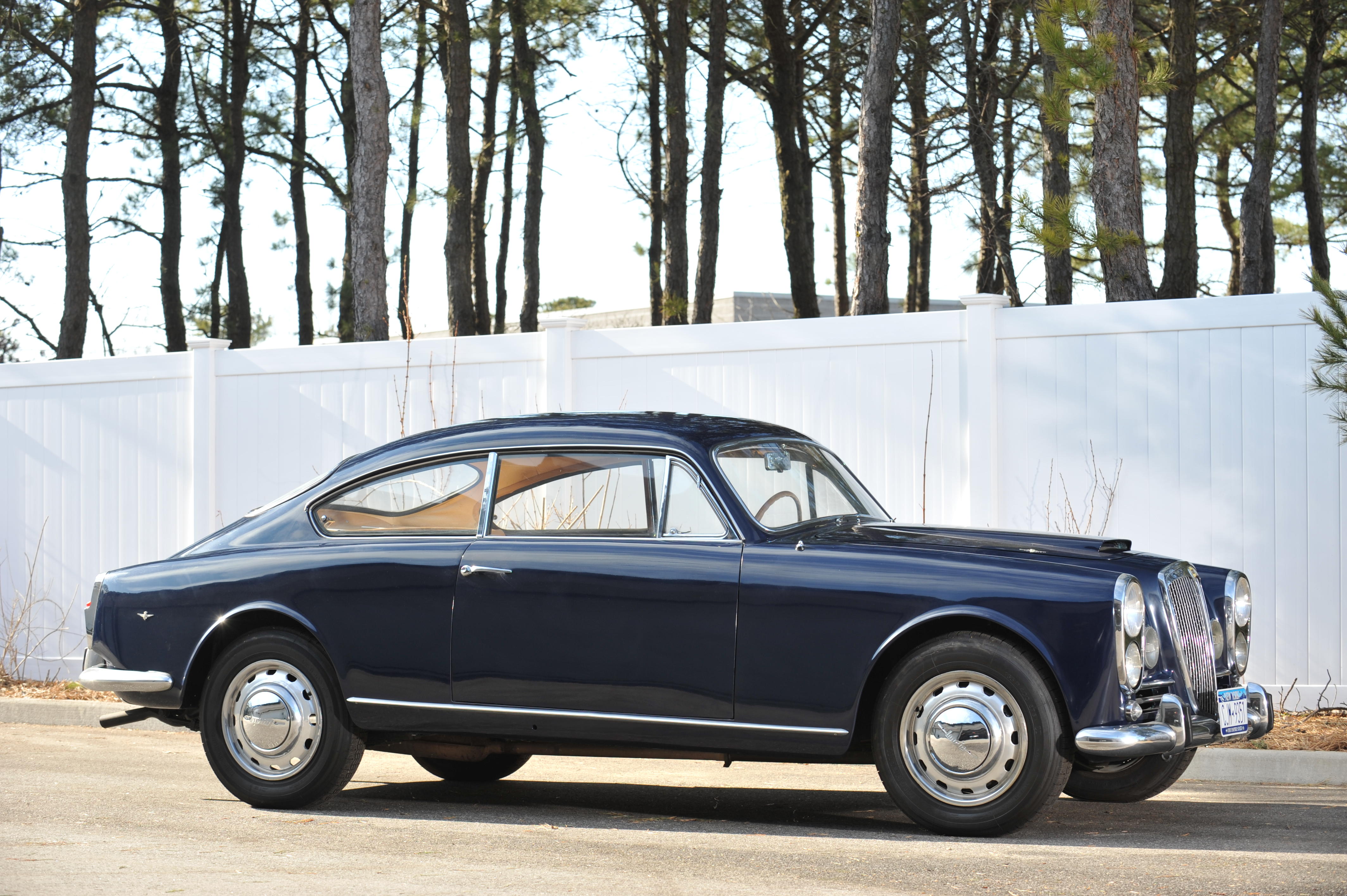
Try LotSearch and its premium features for 7 days - without any costs!
Be notified automatically about new items in upcoming auctions.
Create an alert